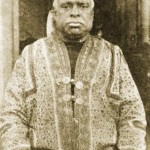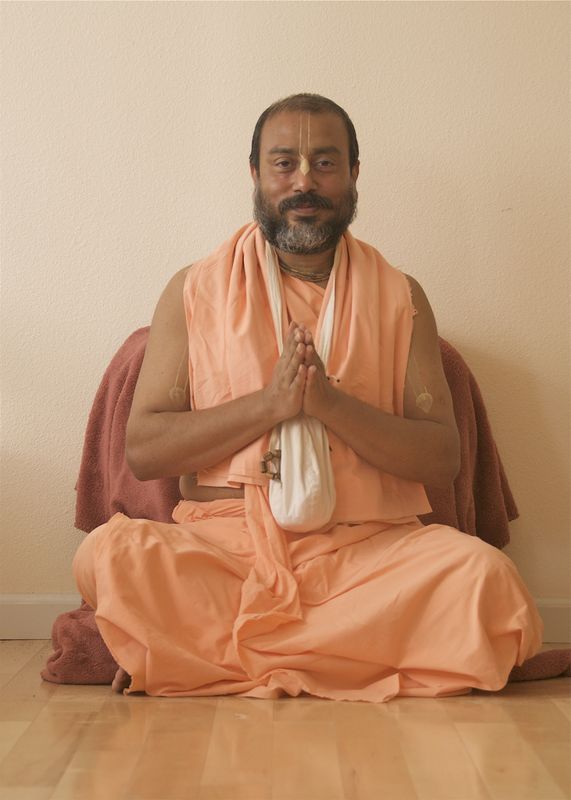Niektórzy moralizujący monoteiści rozmyślając o zaletach i wadach tego świata doszli do wniosku, że nie jest to miejsce niezakłóconej szczęśliwości. W istocie cierpienia górują nad szczęściem. Wobec powyższego uznano, że świat jest więzieniem, w którym żywe stworzenia odbywają karę. Jeśli jest kara, to musiała być i zbrodnia. Czy za niewinność można karać? Jakiej zbrodni dopuściły się żywe stworzenia?
Osoby o słabej inteligencji niezdolne do udzielenia prawidłowej odpowiedzi na najważniejsze pytania wylansowały szaloną ideologię. Bóg stworzył człowieka i ulokował go wraz z żoną w raju. Następnie zakazał mu spożywania owoców z drzewa wiedzy. Ulegając podszeptom złego i łamiąc boski zakaz pierwsi ludzie, mężczyzna i kobieta, skosztowali owocu z drzewa wiedzy. Za karę zostali wygnani z raju i znaleźli się w świecie przepełnionym cierpieniem. Ich grzech spowodował, że wszystkie żywe stworzenia przychodzą na świat w grzechu. Nie znajdując innego sposobu na zmycie grzechu Bóg zstąpił w ludzkiej postaci na ziemię, wziął na swoje barki brzemię grzechów swoich wyznawców i umarł. Każdy kto za nim podąża może z łatwością dostąpić zbawienia. Ci, którzy tego nie czynią, skazani są na wieczne potępienie. Zatem Bóg przybiera ludzką postać, sam siebie karze i zbawia tym samym żywe stworzenia. Osobie inteligentnej trudno będzie doszukać się w tym sensu.
Przed przyjęciem tej wątpliwej religii trzeba uwierzyć w stosunkowo mało wiarygodne tezy:
„Życie zaczyna się od narodzin i kończy wraz ze śmiercią. Żywe stworzenie nie istniało przed narodzinami, a po śmierci opuści świat doczesny. Tylko ludzie mają dusze. Pozostałe stworzenia są ich pozbawione”. Tylko skrajnie nieinteligentna osoba wyznaje taką religię. Zakłada ona, że żywe stworzenie nie jest z natury duchowe. Z własnej woli Bóg oprócz materii stworzył też żywe istoty. Dlaczego żywe stworzenia przychodzą na świat w różnych okolicznościach? Wierni tej religii nie są w stanie na to odpowiedzieć. Dlaczego jedno żywe stworzenie przychodzi na świat w miejscu pełnym cierpienia, a inne w miejscu pełnym radości, jeszcze inne w rodzinie pobożnej, a kolejne w domu ateistów? Dlaczego jednym dane są warunki, które zachęcają ich do spełniania dobrych uczynków i dobroci? Dlaczego innym zaś dana jest skłonność do grzechu i zła? Na próżno szukać odpowiedzi na te pytania u wyznawców tej religii, która zdaje się zakładać, że Bóg jest niesprawiedliwy i nieracjonalny. Skąd założenie, że zwierzęta nie mają dusz? Dlaczego ptaki i bydło nie mają dusz na podobieństwo ludzi? Dlaczego ludziom dane jest tylko jedno życie, które w zależności od uczynków ma im przynieść nagrodę w postaci królestwa niebieskiego lub karę wiecznego potępienia w piekle. Każda osoba, która wierzy, że Bóg jest dobry i miłosierny całkowicie odrzuca taką religię.
Autor Bhaktiwinoda Thakura
Tlumaczenie J
źródło
(434)











3 komentarze
Tekst jest tłumaczony stąd: http://www.wva-vvrs.org/nectar/bhakti.htm
A to jest cały tekst :
Tekst jest nieładny.
Nie wiem , czy to cały tekst, czy wybrany fragment.
Ważny jest też kontekst wypowiedzi Thakury, nie zapominajmy o misjonarzach, którzy nauczali gorliwie w tamtych czasach w Indiach.
W 100% sie z tym zgadzam… szkoda,ze ten temat pociagneliscie tak bardzo pobierznie. Moznaby bylo o tym pisac i pisac…